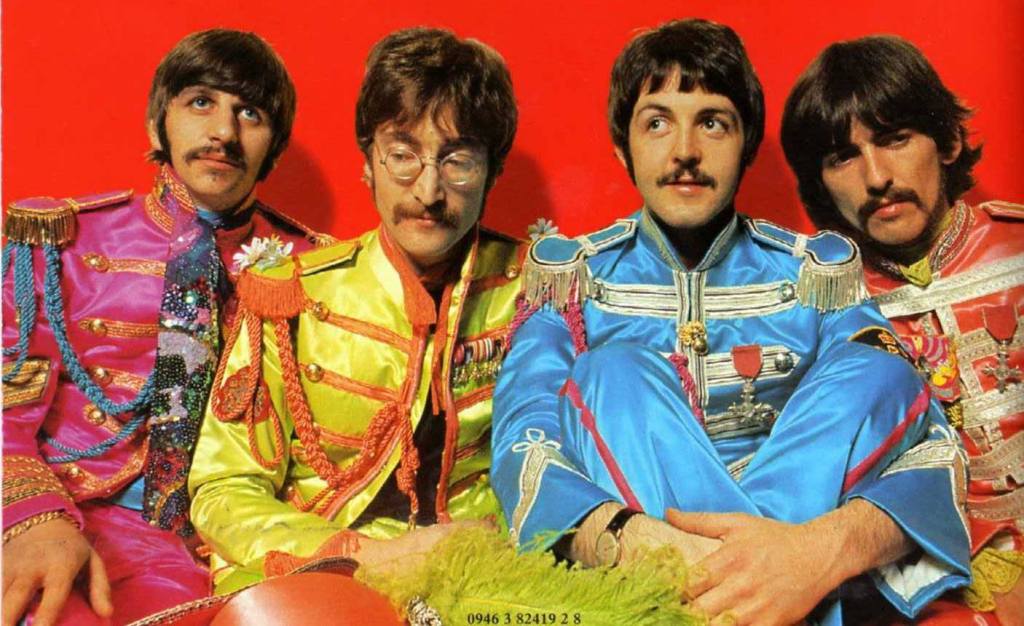With 2017 marking the 50 Year anniversary of the release of The Beatles’ classic album Sgt. Pepper’s Lonely Heart Club LP, we caught up with producer and one-half of the engineering team that worked on the album, Richard Lush.
Speaking ahead of his appearance as part of the Masters Of Sgt. Peppers panel discussion, in celebration of the album’s anniversary to be held in Melbourne on Friday 24th and Saturday 25th of February next year, Lush gave as a behind the scenes look at the recording of the album and working with The Beatles.
https://www.youtube.com/watch?v=W-uTocAlIyw
Imagine being 18 years old and finding yourself in Abbey Road Studios working alongside legendary producer George Martin on the new album by The Beatles. That was the reality for engineer turned producer Richard Lush when, back in 1966, he was called in to work on what would go on to become perhaps the most influential pop album of all time.
Speaking about first starting work on the album, it’s clear it didn’t take him long to realise this wasn’t just another pop album he was working on .
“Pretty much from halfway through the first day I knew it was going to be something special,” he says.
“The first track that I worked on was A Day In The Life. It started out as a pretty normal song, but by the end when they had brought in all the sounds of the orchestra I knew I was working on something revolutionary.”
Of course, Pepper – as it was sometimes referred to – would go on to be seen as the definitive concept album, leading to a host of other artists trying their hand at the format and establishing the idea of the album as a single artwork. Linking each song with the next through soundscapes and cross fades, as well as the overarching concept of the album representing a live performance by the fictitious band of the title, the album was a reaction to the band having abandoned touring and performing and choosing to focus on writing and recording music.
Seeking to elevate their recordings to a more conceptual and artistic level and freed from having to perform their music live, The Beatles were intent on experimenting and breaking new ground with the album. And with EMI approving a limitless budget for them to complete the recording, there really were no limits to what they could do.
“They were pretty much given a blank cheque by EMI,” says Lush, adding that “this allowed them to take as long as they wanted to on anything and making sure it sounded how they wanted it to.”
While this approach did generate a lot of innovation, it would also prove gruelling for Lush, fellow engineer Geoffrey Emerick and Martin who, in keeping up with the band’s work ethic, would often end up working late into the night.
It wasn’t just long hours that made the process a challenge for Lush and Emerick though. Having already pushed the envelope with what was possible technically on their previous albums Rubber Soul and Revolver, The Beatles had by this point ceased to take no for an answer when it came to what was possible.
“Oh yeah, the word ‘no’ didn’t exist for The Beatles,” Lush explains.
“Other bands would just come in and play their songs and record them. With Pepper we would sometimes spend a week on one song recording parts and trying new things and just getting it right. I can’t tell you how many times we would play them a song back only for them to decide to start again from scratch.”
While perhaps at the time this was gruelling for Lush and Emerick, the results proved to be a dream for musicians around the world. Their work lead to numerous technological innovations that would go on to become part of the standard practice of recording. Almost anyone who steps into a studio today owes at least some of the (relative) ease of the process to Sgt Pepper and the work of the Abbey Road Studios team.
One such technique was Automatic Double Track (ADT), a technique created specifically for The Beatles. While it was commonplace at the time for songs to feature double tracked vocals as a means of filling out the sound of a singer’s voice, the process was still awkward, requiring singers to record two separate takes which were then combined in the final recording. For The Beatles and specifically John Lennon, this was a problem that needed a solution.
“John was very impatient and he hated double tracking,” Lush recounts. “He was insistent there must be a technical solution to the problem so he asked Ken Townsend, who was the head technical guy at Abbey Road at the time, to come up with one. So Ken invented Automatic Double Tracking, and the rest is history.”
In fact, Lennon was the source of a lot of other recording innovations featured on the album as well. Always eager to try new things and more than anything try new sounds, his fixation with altering the sound of his voice would see Lush and Emerick pushing the boundaries of manipulating vocals.
“He always wanted everything to be different,” Lush explains. “He would come in and say ‘my voice sounded like that yesterday, what can you do to it today.’ At the time though we were very limited to what we could do with it so we would slow down the tape while recording him and then speed it up again on the recording which would alter the sound of his voice, or we would record his voice back through a Leslie speaker. Whatever we could do to make his voice sound different really.”
While Lennon may have driven a lot of the technical innovation, Pepper also saw Paul McCartney ascending to the position of the band’s dominant creative force. It was Paul who had come up with the idea of the fictitious band and mastering the album without gaps between the tracks to make it sound like a continuous live performance. Inspired by The Beach Boys’ game changing album Pet Sounds, McCartney also wanted to push the band’s sound into new directions.
“Paul loved the harmonies on Pet Sounds and he wanted the band to try something like that,” Lush says. “So he and George Martin would work on them together. It was George who would work out all the harmonies, you know Paul would come in with an idea and George would sit down at the piano and sort of refine it and make it more complex.”
The real star of the album though was the production, with a lot of the other bands and artists signed to EMI keen to listen in to what the band were up to.
“We had to keep the control room locked because we were very wary of letting other people hear what we were doing,” Lush remembers.
Once released, the impact of the album and its ambitious production style would go on to revolutionise recording for years to come. From the dampening and close miking of Starr’s drum kit which allowed a much clearer drum sound, to the launching of an era of albums that, for the first time, were outselling singles. Sgt. Pepper’s Lonely Hearts Club Band‘s impact on contemporary music today is undeniable.
Speaking to Lush, however, what stands out most about the recording of the album is how his and The Beatles’ lack of reverence for how things should be done was what made it so influential. Hardly the first album to tie together under an overarching concept (Frank Zappa and The Mother’s Of Invention’s Freak Out having also served as a big inspiration to McCartney in conceiving the album) and by no means the most experimental album of its time, what truly sets Sgt. Pepper’s apart from other albums of the day is the lack of distinction between being experimental and being popular.
Paving the way for bands like Pink Floyd and other prog-rock bands to push the boundaries of pop music even further still, Sgt. Pepper’s Loney Hearts Club Band by its critical acclaim and commercial success made a clear statement that studio recording itself was an art form ready to be explored.
–
Richard Lush and Geoff Emerick will appear in conversation with Alan Howe (former editor of the Herald Sun and The Weekly Times) at The Masters of Sgt Pepper music panel in Melbourne on February 24th and 25th, 2017. Head here for more details.
https://youtu.be/i3VCM9CGzkg














